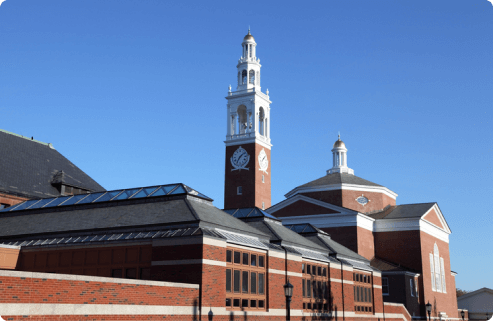Shukla Research Lab
The Shukla Research Lab at the University of Vermont is dedicated to understanding how asbestos exposure causes diseases, such as mesothelioma and lung cancer, and discovering therapies to treat these conditions.

The Shukla Research Lab (SRL) at the University of Vermont’s Larner College of Medicine aims to understand how asbestos causes disease and develop diagnostic and therapeutic approaches for asbestos-related diseases.
Part of the research at SRL involves studying the early detection of mesothelioma through biomarkers, which are unique compounds that help doctors identify diseases.
SRL also researches how asbestos fibers cause mesothelioma cancer and how inflammation affects mesothelioma development.
SRL is part of the Department of Pathology and laboratory medicine at Larner College of Medicine. In addition to promoting research and educating future pathologists, the pathology department also offers clinical services such as diagnosing biopsy samples.
Research conducted at SRL may lead to earlier mesothelioma diagnoses and better treatment. They’re even working on ways to prevent mesothelioma before it even has a chance to develop.
Leadership and Funding
The lab is led by Arti Shukla, Ph.D., who also serves as an associate professor in the pathology department of the University of Vermont’s Larner College of Medicine.
In 2020, Dr. Shukla published breakthrough research on extracellular vesicle and particle proteins that can serve as reliable biomarkers for cancer detection and determining cancer type.
Shukla earned her degrees in biochemistry from Banaras Hindu University in India and held a post-doctoral research position at the University of Michigan. She was a visiting scientist at the University of Vermont before becoming a research assistant professor in the university’s pathology department.
Shukla has earned numerous awards and honors, including awards from the Vermont Cancer Center and invitations to peer-review mesothelioma research.
Since 2002, Shukla has published dozens of studies on asbestos and mesothelioma cancer in peer-reviewed medical journals.
Part of SRL’s research is funded by the U.S. Department of Defense, the National Institute of Environmental Health Sciences and the National Institutes of Health.
SRL is among the few research centers investigating how asbestos causes mesothelioma. Other research centers, such as the Vaccine and Immunotherapy Center and the Pacific Meso Center, focus their research on improving therapies to treat mesothelioma.
Access top doctors, and get help scheduling appointments.
Connect NowDr. Jacques Fontaine, Pleural Mesothelioma Specialist

Research on Mesothelioma
SRL’s mesothelioma research involves understanding how asbestos causes cancer, biomarkers for early diagnosis and targeted therapies for treatment.
SRL’s team has focused on:
- Cell signaling pathways
- Inflammasomes
- Exosomes
Cell signaling pathways are the chain reactions triggered by asbestos fibers that lead to mesothelioma.
Understanding these pathways might help researchers develop drugs to prevent mesothelioma from ever developing in the first place.
Inflammasomes are a collection of proteins that detect foreign invaders — such as asbestos fibers — and activate inflammatory parts of the immune system to attack the invaders.
Asbestos appears to over-activate inflammasomes, leading to uncontrolled inflammation that contributes to the development of mesothelioma. Understanding inflammasomes may help researchers learn how to control inflammation contributing to mesothelioma growth.
Exosomes are fluid-filled sacs released from cells that are involved in cell-to-cell communication. These sacs comprise proteins, fats and nucleic acids (the building blocks of DNA and RNA).
Understanding exosomes may lead to identifying a biomarker to diagnose mesothelioma in its earliest stages.
In 2018, SRL’s exosome study was published in The FASEB Journal. The study was the first to show asbestos exposure alters exosomes in ways that cause genetic damage in mesothelial cells.
SRL’s research is filling knowledge gaps in our understanding of exactly how asbestos fibers cause mesothelioma and how we can better diagnose and treat asbestos-related diseases.
Recommended Reading


